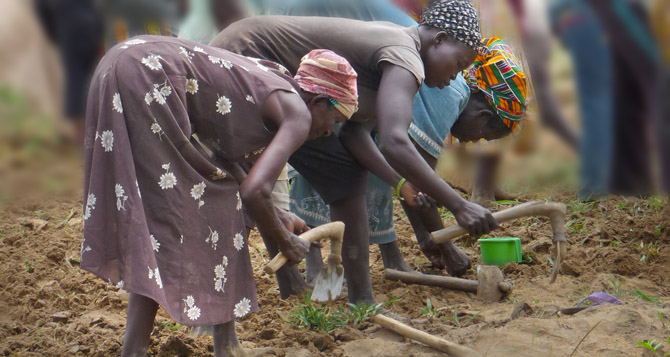
By Kofi Adu Domfeh
The quest for climate justice is a global campaign, but failing to act local by taking climate action, as a matter of urgency, will be at the peril of lives and livelihoods.
Africa and other developing countries, which contributed least to the phenomenon of climate change, are unfortunately most vulnerable to its impacts.
Local people and communities are already reeling under the devastating impacts of unfavourable weather conditions.
Ghana, since the beginning of this year, has experienced a sharp alteration in its weather and living environment.
Destructive downpour, debilitating sunshine, drought, incessant fire outbreaks, high tides and widespread flooding, and pest infestations are now common place.
The havoc caused has exposed Ghana’s challenge in adapting to the changes – farmers are losing their investments in production, communities are helplessly being displaced and infrastructure, such as roads and buildings are collapsing.
At the recent UN Oceans Conference in New York, President Akufo-Addo called for the speedy implementation of the Paris Agreement, a blueprint for global action to reverse the trend of climate change.
The country’s Intended Nationally Determined Contribution (INDC) presented to the UN Framework Convention on Climate Change (UNFCCC) ahead of the Paris Agreement in 2015 outlined a ten year post-2020 enhanced climate action plan.
Ghana will need $22.6billion in investments from domestic and international public and private sources to finance its 31 programme of actions in climate mitigation and adaptation.
A larger chunk of the financing is expected from international sources. But the local financial arrangement would need to be made clear in national budgets.
Under adaptation, for instance, Ghana needs to mobilize $4.21 billion at the national level in order to meet the cost of implementing its adaptation actions.
Climate change is indeed happening in Ghana but the climate voice is low and action is slow.
Ghana’s environment is already at the mercy of illegal mining which has put stress on land, trees and water bodies.
Indiscriminate logging, tree clearing and wetland conversion for building constructions, coupled with bad agricultural practices are threatening the country’s sustainable development.
And climate change could exacerbate the challenges in the country’s environment.
When the rains fail, the drought situation in parts of the country will worsen, communities whose water sources are polluted cannot access rain water, farmers cannot plant and animals roaming in search of pasture will lead to communal conflicts.
And when the rains are torrential, floods will displace communities, infrastructure will collapse, crop yield will be low, and new forms of human migration will emerge.
That is the reality of a changing climate and the rippling effects cut across all sectors of the economy, including health, education, agriculture, housing, energy and transportation.
Polluter’ economies are expected to help fulfill the spirit of the Paris Agreement by cutting down emissions and supporting climate-vulnerable economies with finance and technology to adapt.
But taking climate action at the local level should be everybody’s business – public and private sectors, individuals and corporations, young and old.
The 16th Session of the African Ministerial Conference on the Environment (AMCEN) strongly urged African leaders to develop, pursue and implement their climate and sustainable development commitments.
Developing climate smart solutions for sustainable development should be driven by the private sector, whilst the public sector activates national climate policies and streamline budget allocations to be climate-sensitive to protect lives and livelihoods.
Such action will help increase climate resilience and decrease vulnerability for enhanced sustainable development.










